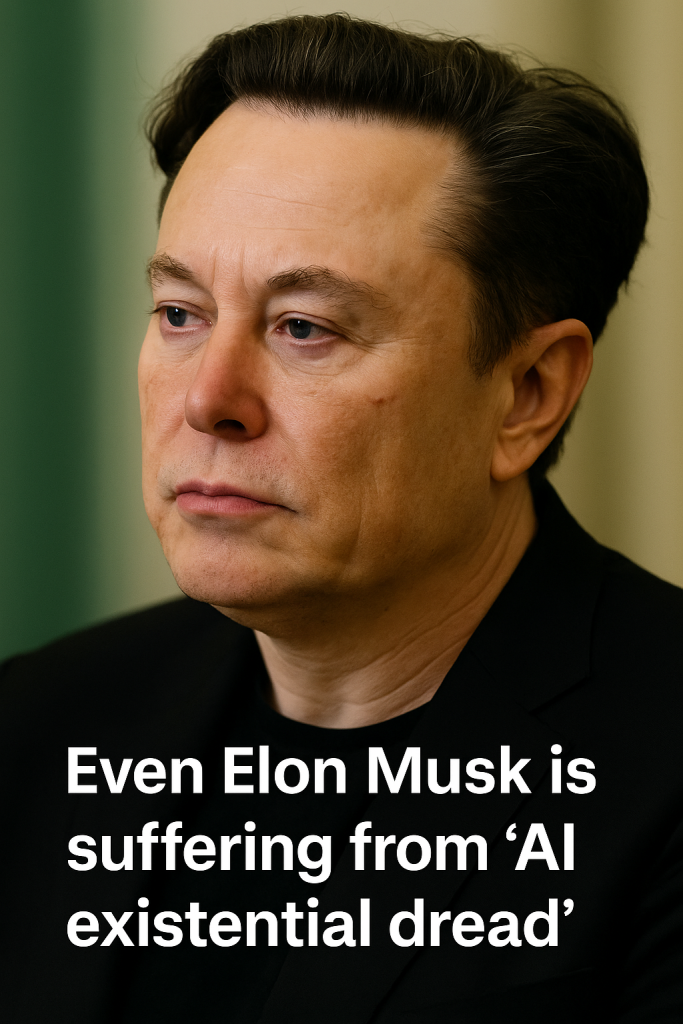As artificial intelligence continues its breakneck advancement throughout 2024, even one of the world’s most tech-savvy innovators is grappling with the seismic societal changes it’s unleashing. Elon Musk, a long-time vocal figure on both the promise and perils of AI, recently shared candid reflections describing the current AI landscape as “overwhelming” — underscoring how the rapid pace of AI’s evolution is causing existential and ethical anxieties at the highest levels.
Musk’s remarks have resurfaced in social conversations online, sparking widespread attention and empathy from the public. Known for his roles at Tesla, SpaceX, and ventures like Neuralink and Starlink, Musk has historically oscillated between enthusiasm and warning about AI’s potential. But this renewed expression of “existential dread” signals that even a pioneer in emerging technologies can feel daunted by the trajectory of artificial intelligence today.
The Speed of AI Innovation Outruns Prediction
AI’s capabilities have expanded at an unprecedented scale this year, transforming from niche research experiments to pervasive tools embedded in everything from creative work to predictive analytics, healthcare diagnostics to autonomous vehicles. What makes today’s AI moment distinct is not just its technical sophistication, but the sheer velocity of deployment and adoption across industries and everyday life.
Musk recently acknowledged in a candid discussion that while he has spent years warning about potential risks of unchecked AI development, the reality now feels more urgent and less controllable than ever before. “It’s like a wave you can’t fully see or predict, and that’s what can make it overwhelming,” he remarked, referring to the global ripple effects AI can have on employment, social dynamics, and even geopolitical power balances.
Existential Dread Among AI Pioneers
This sense of existential concern is not unique to Musk but echoes a broader unease shared by many experts, ethicists, and leaders. The fear centers on AI systems potentially evolving beyond human comprehension or control, raising fundamental questions about agency, safety, and the future of humanity’s role in an increasingly automated world.
Musk’s own creation of OpenAI in its early days, and later distancing himself from the organization, reflected both excitement and skepticism. Now, with generative AI models and autonomous systems influencing more domains, even Musk’s typically optimistic stance shows signs of caution mixed with realism.
Balancing Innovation and Responsibility
The challenge Musk highlights — and one resonating within global discourse — is the need to strike a delicate balance: fostering revolutionary AI capabilities while instituting sufficient oversight, ethics frameworks, and safety mechanisms to prevent unintended consequences.
Governments, tech companies, and watchdog groups are scrambling to craft policies responsive to AI’s evolving risks, but the speed of innovation often outpaces regulatory measures. Musk has urged more proactive governance and public dialogue on these issues, emphasizing that while AI holds transformative potential for solving complex problems, it requires humility and caution to harness safely.
What’s Next?
As society navigates this new era, the fact that even Elon Musk publicly expresses “overwhelming” feelings about AI’s trajectory humanizes the broader technological upheaval. It serves as a reminder that grappling with AI’s profound impact is a collective challenge, demanding thoughtful discourse and collaborative stewardship.
For individuals and organizations alike, Musk’s reflections invite deeper awareness of AI’s double-edged nature — exhilarating in possibility, yet daunting in its speed and scope. The conversations sparked by his honesty may help shape a more balanced path forward as humanity adapts to living alongside increasingly intelligent machines.


